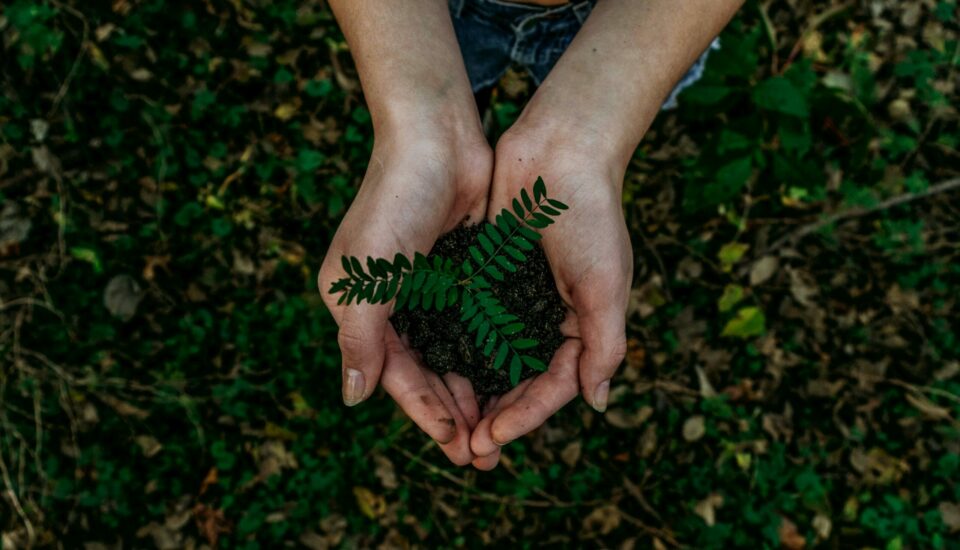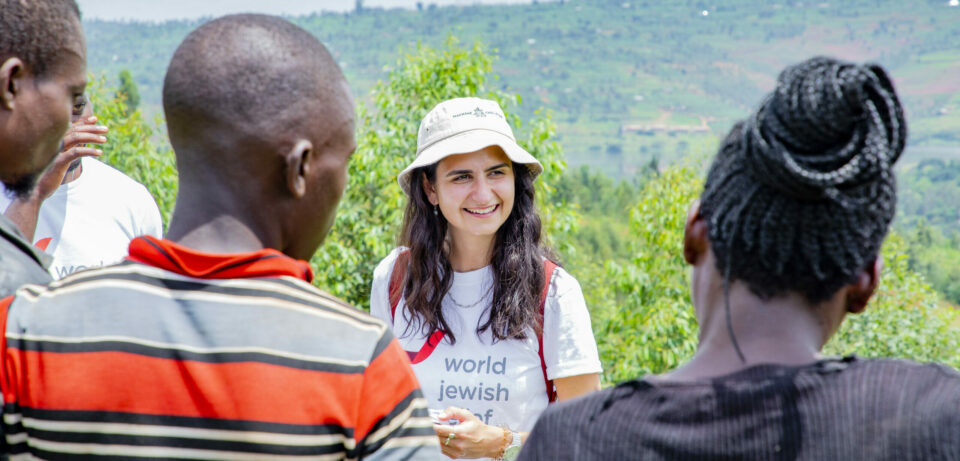By Rabbi Dina Brawer, Executive Director World Jewish Relief USA
This year, Earth Day coincides with the eve of Passover, inviting us to contemplate the link between the two. Passover, possibly the moment of peak consumerism in the Jewish calendar, seems to require such quantities of matzah, wine and special ingredients, in addition to an array of dedicated kitchen tools and disposable items for large Seder gatherings. It is a time when I find it harder to maintain my standards for reducing waste and recycling and I can see it in the amount of trash we generate in one week.
While the link between our daily consumption habits and global climate shifts may not always be immediately evident, the impact is undeniably real and starkly evident in regions where World Jewish Relief’s humanitarian and climate resilience programs operate. In Kathmandu, Nepal, huge piles of plastic waste offloaded by wealthy western countries contaminate rivers that provide drinking water. Tackling these enormous piles of garbage by reducing our consumption and waste, known as climate mitigation, is vital but also daunting.
For me a real turning point was hearing Bishnu, a Nepalese farmer and father of seven, recount how eight days of unseasonal rains destroyed his crops, leaving him barely able to feed his family one meal a day. His story personalized the devastating effect of our daily choices, from diet to transportation, directly affecting vulnerable communities globally. The once-hidden repercussions of these decisions can no longer be overlooked. While reducing, we must also prioritize climate adaptation. This entails supporting communities already facing the brunt of climate change, aiding them in adapting their livelihoods and preparing for climate-related disasters.
Understanding these individual narratives and the tangible impacts of climate events can galvanize us to act and provide direct assistance. Such insights can also fuel our motivation to consume more responsibly, recognizing that our choices reverberate globally.
Passover provides a blueprint for addressing this challenge—symbolized by burning chametz, leaven, and by eating matzah. Chametz is a metaphor for all that is superfluous, and in fact we must completely rid ourselves by burning it. Matzah is the most basic and simple food, an invitation to contemplate a simpler lifestyle and perhaps consider what it is we really need and what we can definitely do without.
This Earth Day and Passover, let’s reflect on the ethical dimensions of our consumer choices. By embracing both climate mitigation and adaptation, we can contribute to a more sustainable and equitable world, where our actions reflect our values and respect for our planet and its inhabitants.
Hear Bishnu’s story and learn how, through World Jewish Relief’s Climate Resilience Program in Nepal, Bishnu and 2,592 other community members in Sindhupalchowk and Mahottari now cultivate flood and drought-resistant crops, adapting to the changing climate.







